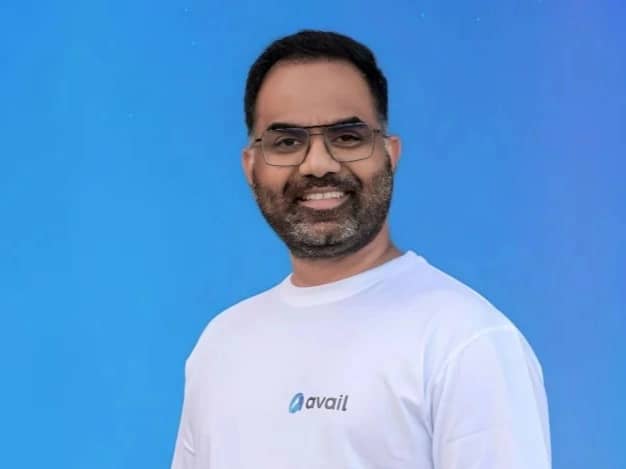订阅 wiki
Share wiki
Bookmark
Anurag Arjun
0%
Anurag Arjun
Anurag Arjun 是领先的 以太坊 扩展解决方案 Polygon 的联合创始人兼首席产品官。在 Arjun 以及 Jaynti Kanani、Sandeep Nailwal 和 Mihailo Bjelic 的领导下,Polygon 的市值从 2019 年的 2600 万美元增长到 2021 年的超过 140 亿美元。[14]
除了在 Polygon 的关键作用外,Anurag Arjun 还创立了 Avail,该项目于 2024 年 7 月 24 日正式启动。[1][4][9]
教育
2006 年,Arjun 获得了尼尔玛理工学院计算机工程专业的工程学士学位。他还在 CAT(印度管理学院的普通入学考试)考试中获得了 99.6% 的百分位分数。
个人生活
Anurag Arjun 来自印度卡纳塔克邦班加罗尔。他会说英语、古吉拉特语、印地语和马拉雅拉姆语。[8]
职业生涯
Arjun 于 2006 年开始了他的职业生涯,在 Cognizant 担任程序员分析师。他还是 Cognizant 部门在印度浦那的生命科学解决方案和咨询小组的成员。2008 年,他成为 Dexter Consultancy 的产品经理。Arjun 在那里工作了五年,在此期间,他共同创立了两款产品——HealthTrac,一个通过第三方可穿戴设备进行远程生命体征参数监控的平台;以及 HealthOne,一个为医生提供的免费基于 SaaS 的诊所管理工具。[2]
我从本质上来说是一位技术专家,我非常喜欢整合——从不同的应用程序或领域中提取实践并应用它们。我具备基本的编码能力、高级的产品定义专业知识、中级的客户研究和客户开发技能。
2013 年,Arjun 离开 Dexter Consultancy,在 SNL Financial 担任项目经理。在 IRIS Business Services,他一年内晋升为产品管理副总裁。Anjur 负责监督一个由 40 多名成员组成的跨职能团队,他们彻底改造了产品,从而对 UX 流程和设计、应用程序性能优化以及更大的代码可维护性进行了重大更改。
Polygon
2017 年 12 月,Anurag Arjun 成为 Matic Network 的联合创始人兼首席产品官,该网络后来更名为 Polygon。在这个职位上,Arjun 负责概述公司的产品路线图,监督与合作伙伴网络的集成,并管理负责平台开发的团队。
Polygon 已成为 区块链 行业内的平台。它的 Layer 2 扩展解决方案解决了与 以太坊 相关的可扩展性挑战,从而实现了更快、更具成本效益的交易。根据 Alchemy 的数据,截至 2022 年 8 月,这导致了超过 37,000 个 去中心化应用程序 (dApps) 在 Polygon 上开发。
包括 Aave、Sushiswap 和 Adobe 在内的多个项目和公司都采用了 Polygon 的技术。该平台的增长归功于其可扩展性、互操作性和以用户为中心的设计,被定位为以太坊生态系统的一个组成部分。
Arjun 还在 2024 年 6 月接受 cointelegraph 采访时澄清说,Polygon 的开发旨在补充 以太坊 生态系统,而不是与之竞争。根据 Arjun 的说法,最初的目标是为以太坊创建一个扩展解决方案,尽管 Plasma 方法最终被证明是不可行的。
这一认识促使 Polygon 转向其 权益证明 (PoS) 网络,为 ZK-rollup 解决方案的开发奠定了基础。[3][7]
Avail
Avail 主网 于 2024 年 7 月 24 日启动,该生态系统由三个主要层组成,每个层都具有不同的功能,以支持创建有凝聚力的 区块链 环境的总体目标:
- 数据可用性 (DA) 层:这个基础层侧重于数据可用性,为模块化链提供可扩展和优化的环境。DA 层确保开发人员可以使用有效性证明独立验证数据可用性,从而无需信任 Avail 的声明。
- Nexus 层:Nexus 是一个基于 零知识证明 的协调 rollup,它充当验证中心,统一 Avail 生态系统内外的所有 rollup。它利用 Avail DA 作为其信任根,并包括一个证明聚合/验证层和一个排序器选择机制。
- Fusion 安全层:Fusion 通过允许来自 比特币 和 以太坊 等主要生态系统的资产与 Avail 的原生资产一起进行质押,从而增强了 Avail 网络的安全性。这种外国代币的集成增强了 Avail 的加密经济安全性。
Avail 旨在弥合各种 区块链 生态系统之间的差距,通过其强大的基础设施和模块化方法增强可扩展性、互操作性和安全性。[9][10]
Arjun 在一条 Twitter 帖子中提到,早在 2020 年,他就在 Polygon Labs 内部启动了 Avail 的工作。然而,由于 Polygon 目前专注于其 Layer 2 解决方案,Layer 1 Avail 链不再符合该项目的主要目标:
“Avail 作为一个具有数据可用性层的模块化区块链,具有独特的优势,可以帮助开发人员克服单体区块链的挑战,但它不属于 Polygon 的 L2 解决方案。因此,我主动提出继续领导 Avail 作为一个独立的、自筹资金的实体,”——Anurag Arjun
作为一个独立的项目,Avail 继续专注于通过其模块化架构推进 区块链 基础设施。该平台的结构——包括数据可用性层、Nexus 层和 Fusion 安全层——旨在促进不同区块链网络之间的互操作性和安全性。[11][12]
Anurag Arjun 谈模块化区块链和 Avail
在 2024 年 6 月 29 日接受 Incrypted 采访时,Anurag Arjun 讨论了他从 Polygon 过渡到专注于 Avail 的过程,Avail 是一种旨在解决数据可用性 (DA) 问题的模块化 区块链。Arjun 在阅读了 Mastering Bitcoin 后开始接触区块链技术,这后来促成了 Polygon 的共同创立,旨在解决 以太坊 的可扩展性挑战。
Arjun 指出,随着 Polygon 的发展,很明显 rollup 需要改进的数据可用性解决方案。Avail 最初是在 Polygon 内部创建的,以满足这一需求,但到 2023 年 3 月,它成为一个独立的项目,以保持中立立场并支持更广泛的 rollup。
Avail 作为一个模块化数据可用性层运行,增强了不同 区块链 网络之间的可扩展性、安全性和互操作性。其结构包括用于可扩展性的 Avail DA、用于跨链通信的 Avail Nexus 和用于多资产质押的 Avail Fusion。
Arjun 强调了像 Avail 这样的模块化 区块链 在解决区块链行业内的可扩展性挑战方面日益重要的作用。他还指出了 AVAIL 代币在该项目中的作用,该代币用于网络服务、通过 质押 实现安全性和治理。
展望未来,Arjun 将 Avail 视为 Web3 的关键层,有助于更广泛的 区块链 生态系统的可扩展性和互操作性。他还对 Polygon 生态系统的未来持乐观态度,预计模块化区块链解决方案将进一步创新,并在 2024 年继续关注可持续性和能源效率。[13]
Avail 融资轮次
2024 年,Anurag Arjun 领导 Avail 进行了两轮重要的融资,总额达 7500 万美元。2 月,Avail 获得了由 Founders Fund 和 Dragonfly 共同领投的 2700 万美元种子轮融资,SevenX、Figment 和 Nomad Capital 等投资者也参与了投资。
这些资金被分配用于推进 Avail 的三个核心组件:数据可用性 (DA) 层、Nexus 统一层和 Fusion 安全层,统称为“Avail Trinity”。这些组件旨在通过使模块化执行层能够以最小化信任的方式进行扩展和互操作,从而解决区块链可扩展性和互操作性方面的挑战。[15]
2024 年 6 月,Avail 宣布完成 4300 万美元的 A 轮融资,再次由 Founders Fund 和 Dragonfly 共同领投,Cyber Fund、SevenX Ventures、Figment Capital、Nomad Capital 等也参与了投资。本轮融资使 Avail 的总融资额达到 7500 万美元。
这些资金被用于构建 Avail 的统一层,这是一个模块化技术堆栈,它结合了数据可用性、聚合和共享安全性,使模块化区块链能够以无需许可且安全的方式进行扩展和互操作。此外,这些资金还支持 Avail 的 Fusion 安全层的开发,该层集成了 以太币 (ETH) 和 比特币 (BTC) 等资产,以促进 Avail 生态系统的安全性。Fusion 安全层预计将于 2025 年初上线。[16]
Anurag Arjun 强调了这些发展在解决 Web3 领域关键挑战方面的重要性,他表示:
“有了这笔新资金,我们已准备好加速我们的发展,扩大我们的全球影响力,并继续解决当今 Web3 面临的最关键的挑战,例如区块链碎片化、数据可用性不足和有限的扩展。”
他还强调了区块链技术不断发展的格局,并指出:
“Rollup 工具将发展到如此程度,以至于部署特定于应用程序的 rollup 将像今天部署智能合约一样容易。”[15] [16]
发现错误了吗?
